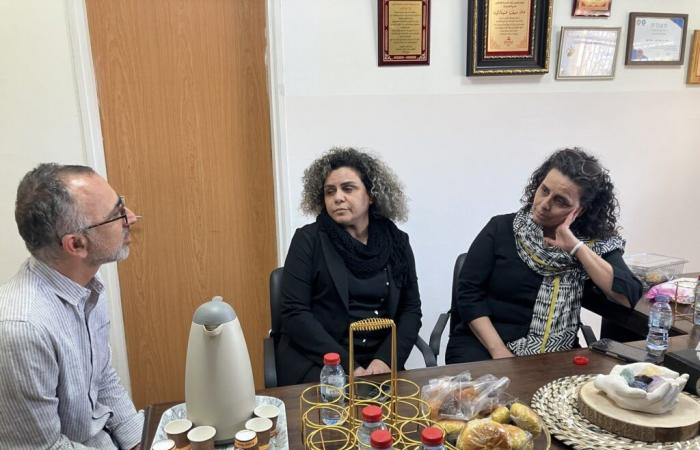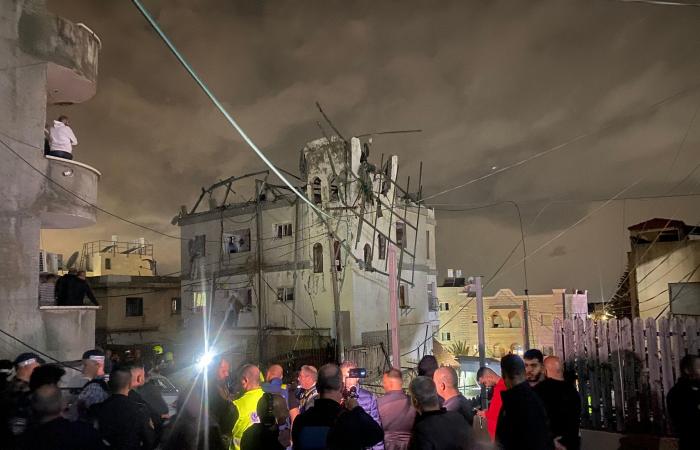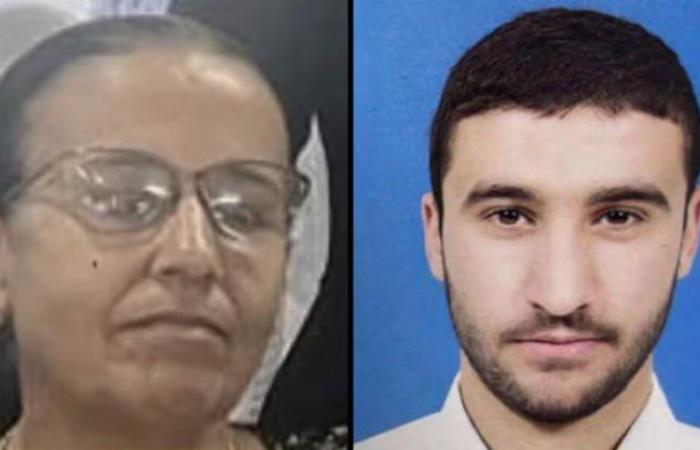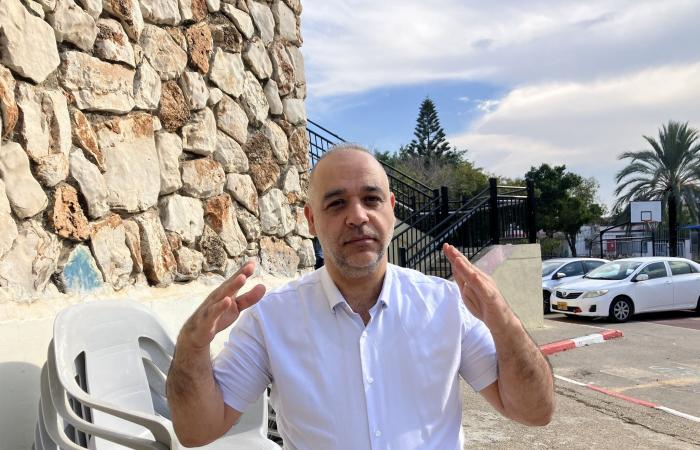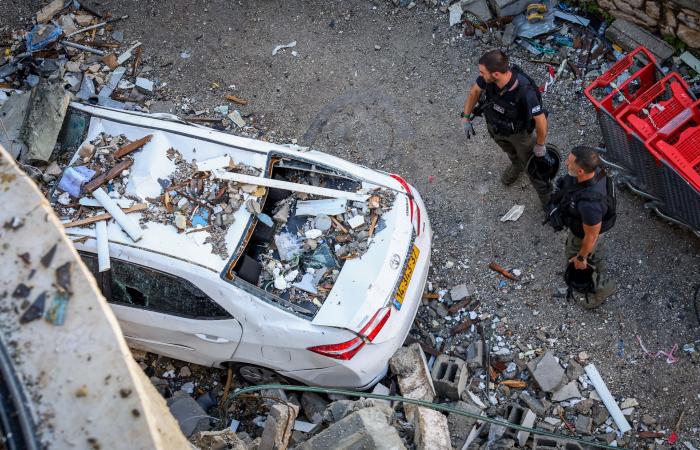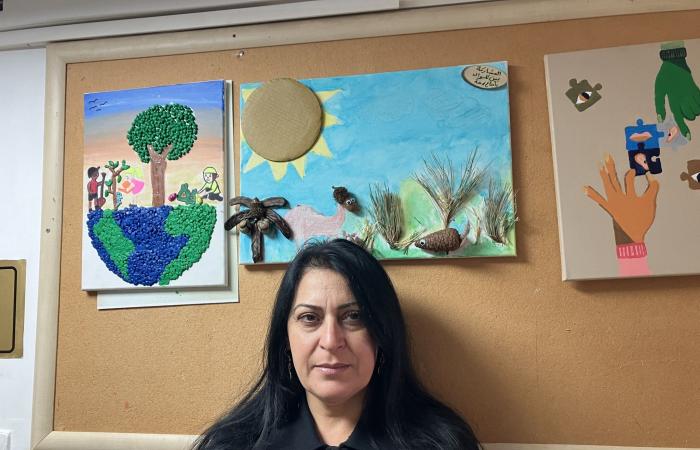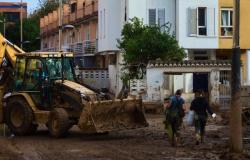SHFARAM, Northern Israel – Three representatives of Tag Meïr, a volunteer organization that tries to combat racism, told two sisters of Safaa Awad, 41, who was killed by a rocket from the Lebanese Shiite terrorist group Hezbollah shot from Lebanon to northern Israel on Monday, that they were sorry for the racist comments that some Israeli Jews posted on social media after his death.
“We are ashamed because these are not Jewish voices,” said Yossi Saidov, who came from Jerusalem with Avner Reshef and Charlie Alexander to offer their condolences and apologies to Safaa’s family. “We have come to tell you that we understand your loss and that we are with you. »
Najlaa Awad thanked the three men and said she was “disturbed and shocked” by the negative comments she saw.
Receive our daily edition for free by email so you don’t miss the best news. Free registration!
“Just because my sister covered her head doesn’t mean she was a terrorist,” Najlaa said.
Safaa, mother of four children, was a teacher in a primary school. She was in the Mamad – secure room – of the family apartment, located on the top floor of a three-story building, when Hezbollah fired five projectiles into the Galilee.
Rambam Hospital in Haifa said a total of 56 victims were brought for treatment, mainly for acute anxiety. Four women are still being treated in hospital in mild to moderate condition.
A memorial for Safaa Awad, killed on November 18, 2024 by Hezbollah rockets, installed in the school where she worked. (Credit: Courtesy)
The Israeli military said interceptor missiles were launched to counter the attack and that it was investigating the impact.
Najlaa explained to Tag Meïr visitors that the two sisters had grown up in a “liberal” family. They listened as Najlaa described how some of her nephews served in the IDF.
According to Tag Meïr’s website, the organization offers condolences to victims of terrorism, repaints racist graffiti and holds meetings with politicians to curb inflammatory rhetoric.
“Others serve in the border police. I volunteered in a youth police program for many years,” Najlaa continues. “My sister was killed by a rocket, and we still have to suffer from hateful comments. »
Rescue workers and police at the scene of the impact of a deadly Hezbollah rocket, in Shfaram, northern Israel, November 18, 2024. (Israel Police)
After the pogrom perpetrated by the Palestinian terrorist group Hamas on October 7, 2023, when some 6,000 Gazans including 3,800 Hamas-led terrorists stormed southern Israel, killing more than 1,200 people, mainly civilians, kidnapped 251 hostages of all ages – committing numerous atrocities and perpetrating sexual violence on a large scale, Najlaa said: “It hurt us because we are Israeli residents. »
Then she stopped and added, “We are tired of hearing bad things. Every good word helps us. »
A series of tragic losses
On October 31, Hezbollah rockets killed Mina Hasson, 60, and her son Karmi Hasson, 21, residents of Shfaram who were picking olives in an orchard near the town.
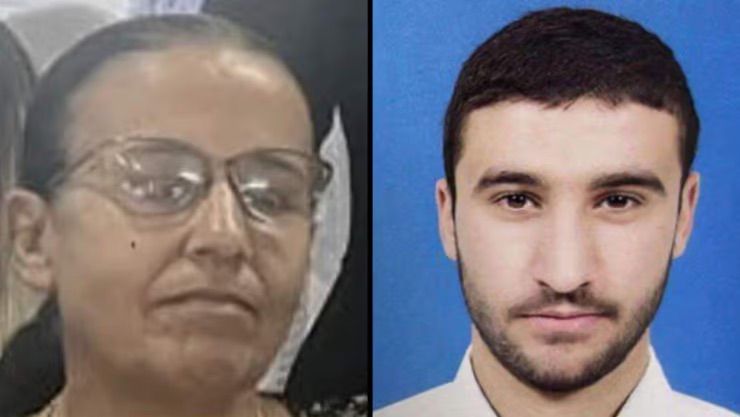
Mina Hasson (left) and her son Carmi Hasson, from Shfaram, killed in a Hezbollah rocket attack on October 31, 2024. (Credit: Screenshot/X; used in accordance with Article 27a of the Law on copyright)
Since October 8, 2023, Hezbollah has attacked Israeli communities and military posts along the border daily with rockets, drones, anti-tank missiles and other means, claiming it is doing so to support Gaza as part of of the war against the Palestinian terrorist group Hamas which is taking place there.
The Lebanese Shiite terrorist group has since expanded its attacks to cities in central and northern Israel, in addition to attacks on the border.
Some 60,000 residents were evacuated from northern towns on the Lebanese border shortly after Hamas’s barbaric and sadistic October 7 assault, fearing that Hezbollah would carry out a similar attack.
Over the past year, attacks on northern Israel have resulted in the deaths of 44 Israeli civilians. In addition, 72 Israeli army soldiers and reservists lost their lives during cross-border clashes and the ground operation launched in southern Lebanon at the end of September.
A city with three religions
Shfaram, a sprawling city set on seven hills in the Galilee, is a mixed community of some 43,000 residents. There are Muslims, Christians and Druze, a mix of modern and traditional, with women wearing fashionable Western clothing, sporting tattoos and wearing Converse, and others dressed in hijabs, gabiyas and traditional Druze white sails. Shops, whose names are written in Arabic, Hebrew and English, abound in the streets.
“We are a city of three religions,” said Raaf Siddiq, director of the Shfaram education system.
“We are a model of coexistence. People here work in high technology in Haifa, they work among Jews. »
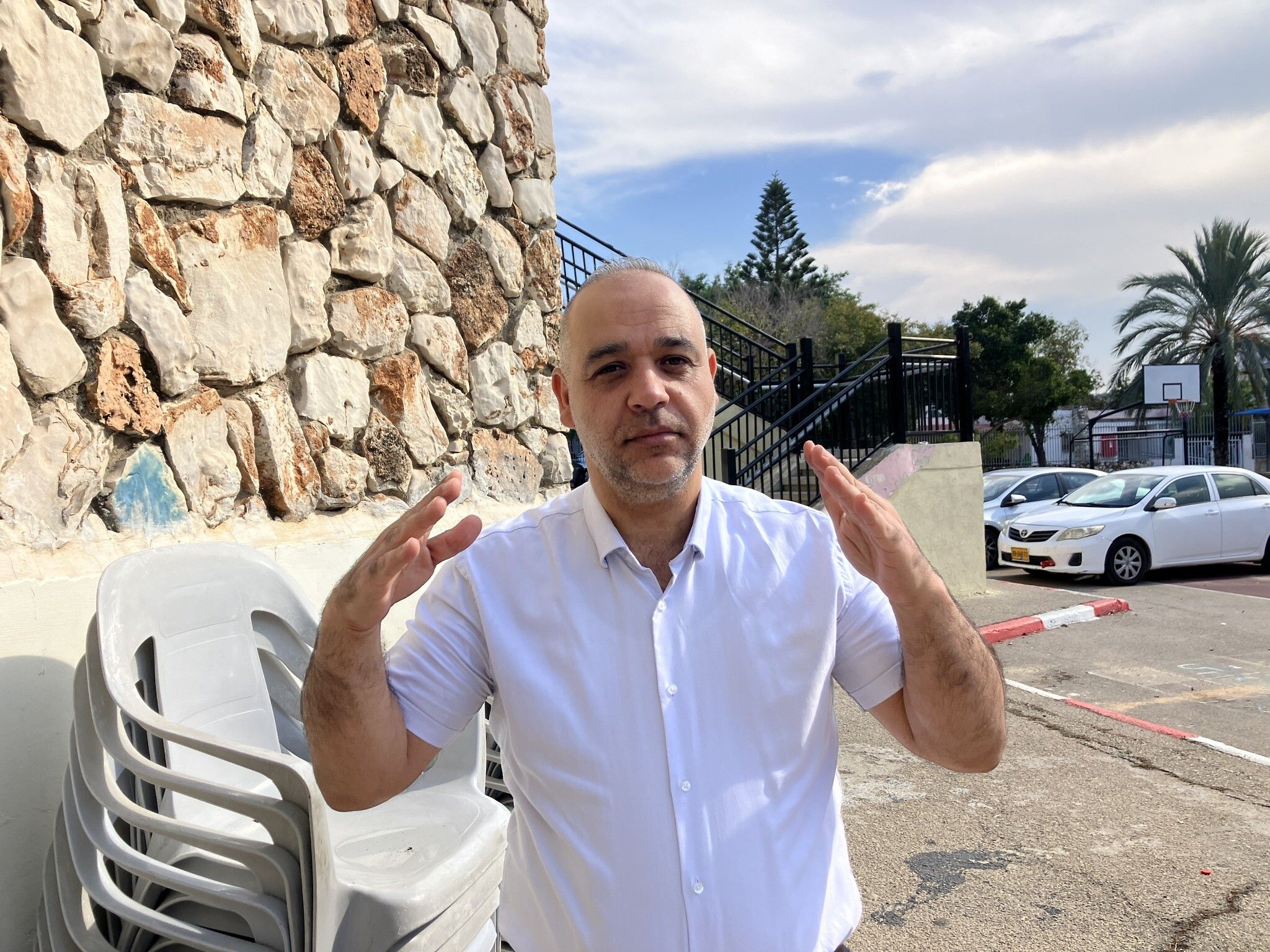
Raaf Siddiq, director of the Shfaram education system, November 21, 2024. (Diana Bletter/Times of Israel)
However, he declared that “the racist ideology of [Itamar] Ben Gvir, the Minister of National Security, has spread.”
He said he and other city residents felt like they had experienced two explosions: first, the rocket, then “an explosion of racism.”
“Racism when we suffer most. It is very difficult to face racism on top of war. We feel like we’re caught in the crossfire. »
Siddiq emphasized that he teaches his children that “we don’t always have to agree, but we have to respect each other.”
After Monday’s attack, he said no government ministers had called. But since then, the city has received visits from Education Minister Yoav Kisch, Diaspora Affairs Minister Amichai Chikli and Knesset member Benny Gantz. All three met with Shfaram officials and offered their condolences to the family.
“Even on tough days, we have to see the connections,” Siddiq said.
Shourouk Naffa, deputy director of Shfaram’s Urban Services Department, said that since the rocket explosion, the town hall has been helping people whose homes were damaged find temporary housing. On Thursday morning, staff at Naffa’s office were busy fielding calls from people who wanted to speak to a social worker or psychologist.
Naffa said the war ultimately directly affected her and others in the town.
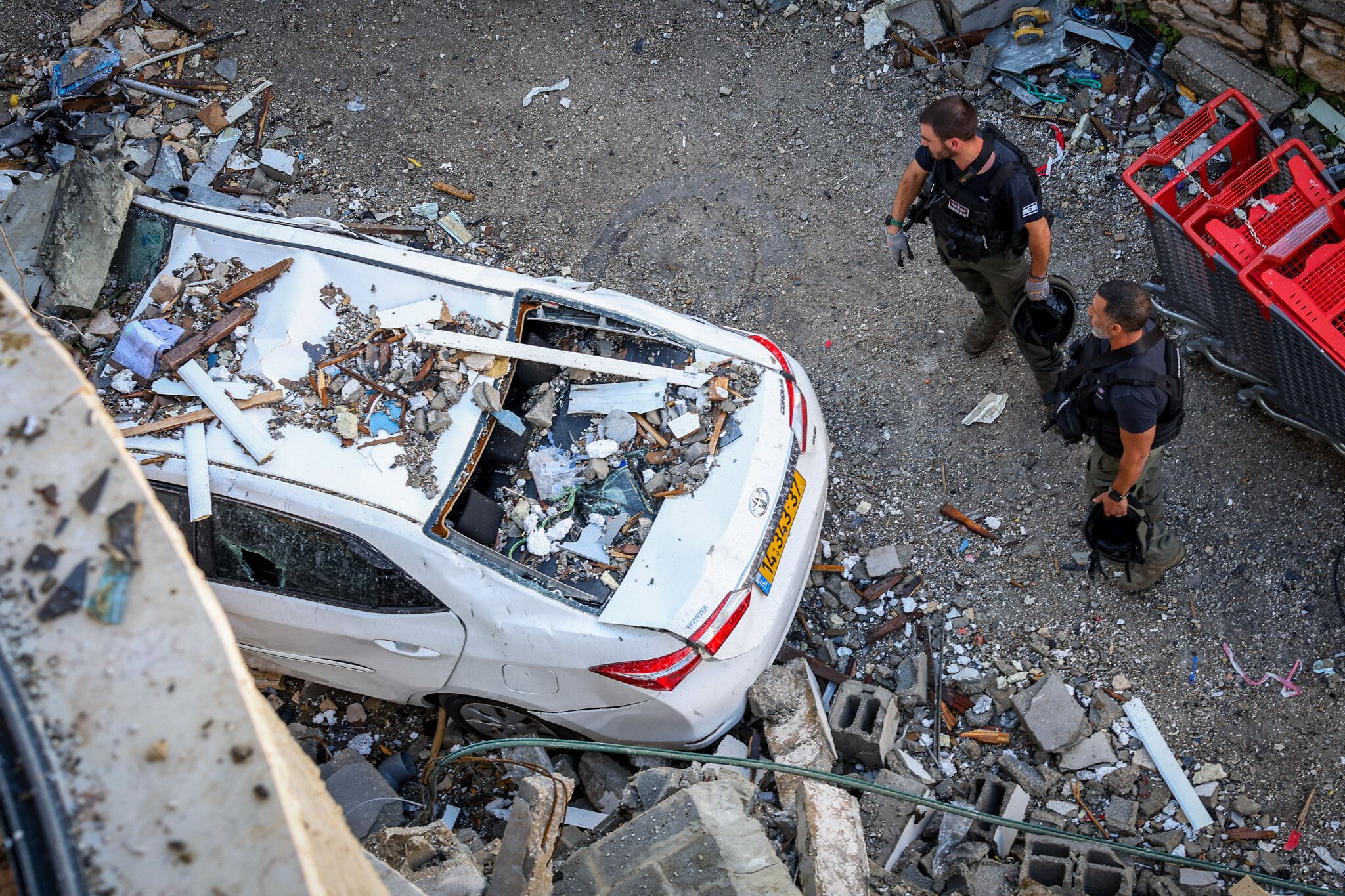
Debris after a Hezbollah rocket hit a building in the northern Arab town of Shfaram on November 18, 2024. (David Cohen/Flash90)
“We never really felt the war until now,” she admitted.
“I always watch war news on television, but I never thought I would see the same images with my own eyes. »
When his daughters ask him why there is a war, Naffa tries to explain to them that “two different countries want the same land.”
“I try not to talk about politics with my children. We work with Jews, we have Jewish friends. It’s difficult. »
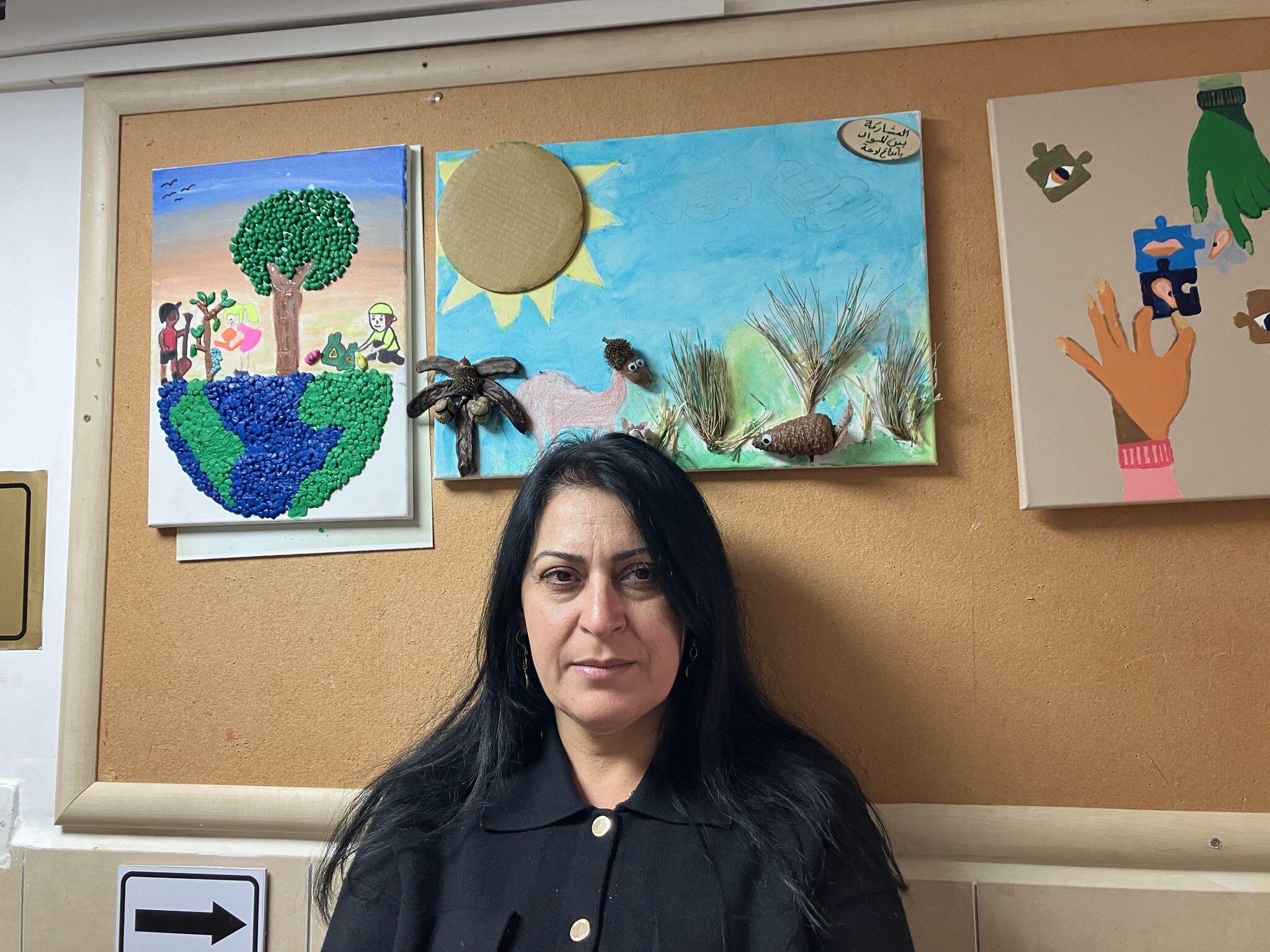
Ola Anabtawi, principal of Alfoar primary school in Shfaram where Safaa Awad worked, killed by a Hezbollah rocket on November 18, 2024. (Diana Bletter/Times of Israel)
The Alfoar elementary school where Safaa Awad taught for 26 years is closed due to the security situation. Since Safaa’s burial, her loved ones have gathered in one of the school’s empty classrooms, where people come to pay their respects.
Visitors commented that Safaa was generous and warm, a woman who “always had a smile on her face.”
“We need to set new priorities,” said Ola Anabtawi, the principal of Alfoar Primary School.
“We need to talk more. Make more connections. We don’t know when we will lose the people we love. »
The sisters of Safaa spoke quietly to the representatives of Tag Meïr who came to offer them their apologies and condolences.
“Everyone is born in the image of God,” Saidov told the Safaa sisters.
“We wanted to come here to tell you that you are not alone. »

